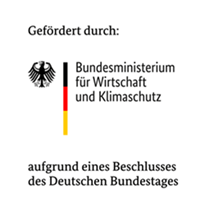
News
Project ModuLA: Information from planning to operation | 06.02.2019
Linking all the Information from the planning and operation phases requires a continous and consistent information model for the entire life cycle. Project ModuLA started end of 2018 to work out the specifications for this integrated approach.
weiterlesen
ENPRO once more at the PAAT meeting | 10.11.2015
This year presented the initiative ENPRO a large proportion of the scientific program of the Annual Meeting of ProcessNet Section "Process, Apartus- and Plant Engineering (PAAT)" on 16 and 17 November 2015 Bruchsal. Prof. Kockmann gave on Tuesday, 11/17/2015, an overview of the ENPRO idea and subsequently showed the individual projects their current results.
weiterlesen
1st ENPRO day was a great success | 29.06.2015
On the 24.06.2015, over 50 experts from the ENPRO initiative met at DECHEMA in Frankfurt am Main, Germany, to discuss the latest results. A World Café was held during this meeting, debating the current developments and developing ideas for the further progress.
weiterlesen
Continuous processes for specialty polymers employing a novel approach to equipment
Nowadays, large-volume polymers are manufactured in large production plants with capacities of more than 100 000 tonnes per year by means of continuous processes. These processes are energy-efficient and they consume less time and resources. However, the situation is different for speciality polymers that are produced in quantities of 500 - 15 000 tonnes per year. They are still mainly manufactured by discontinuous processes in conventional stirred-tank reactors, because the main emphasis here is on being able to manufacture a wide range of products in the same plant, and the low energy efficiency of plants of this type is tolerated.
Speciality products such as those that are manufactured by solution polymerization for use in pharmaceuticals, cosmetics and detergents, are increasingly gaining importance in the chemical industry. Manufacturers are increasingly faced with the question of how they can conserve resources and make their processes more energy efficient in order to be able to produce polymers more economically. The manufacture of speciality polymers by batch processes in stirred-tank reactors has some fundamental disadvantages compared to processes that employ continuous reactors.
Up until now, efforts to develop a continuous process for manufacturing speciality polymers have been unsuccessful due to a lack of suitable equipment. One possible solution to this problem is to use continuously operated millireactors, which combine the flexibility of batch processes with the energy efficiency of continuous processes and their efficient use of resources. This is the best choice of equipment for manufacturing specialties that are produced in low to medium volumes.
Another important aspect for manufacturers of speciality polymers which are under pressure to innovate is the speed for launching new developments on the market. However, another disadvantage of stirred-tank reactors is that it is difficult to scale them up from the laboratory, and a pilot plant may be necessary as an interim step. Shortening this chain of processes in order to save time and resources creates direct competitive advantages on the competitive world market for innovative specialities.
As well as the polymerization reaction, most manufacturing processes for specialty polymers include a downstream processing stage that employs conventional, energy-intensive processes. It is also intended to optimize this processing stage by using modules that consume less energy and resources and to adapt them to the smaller capacity that is required.
The aim of the project is to develop an efficient overall concept for developing products and processes for specialty polymers more quickly, including the downstream processing stage, from the laboratory through to full-scale production using continuously operated equipment that is capable of being scaled up.
